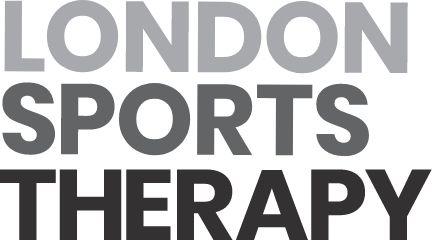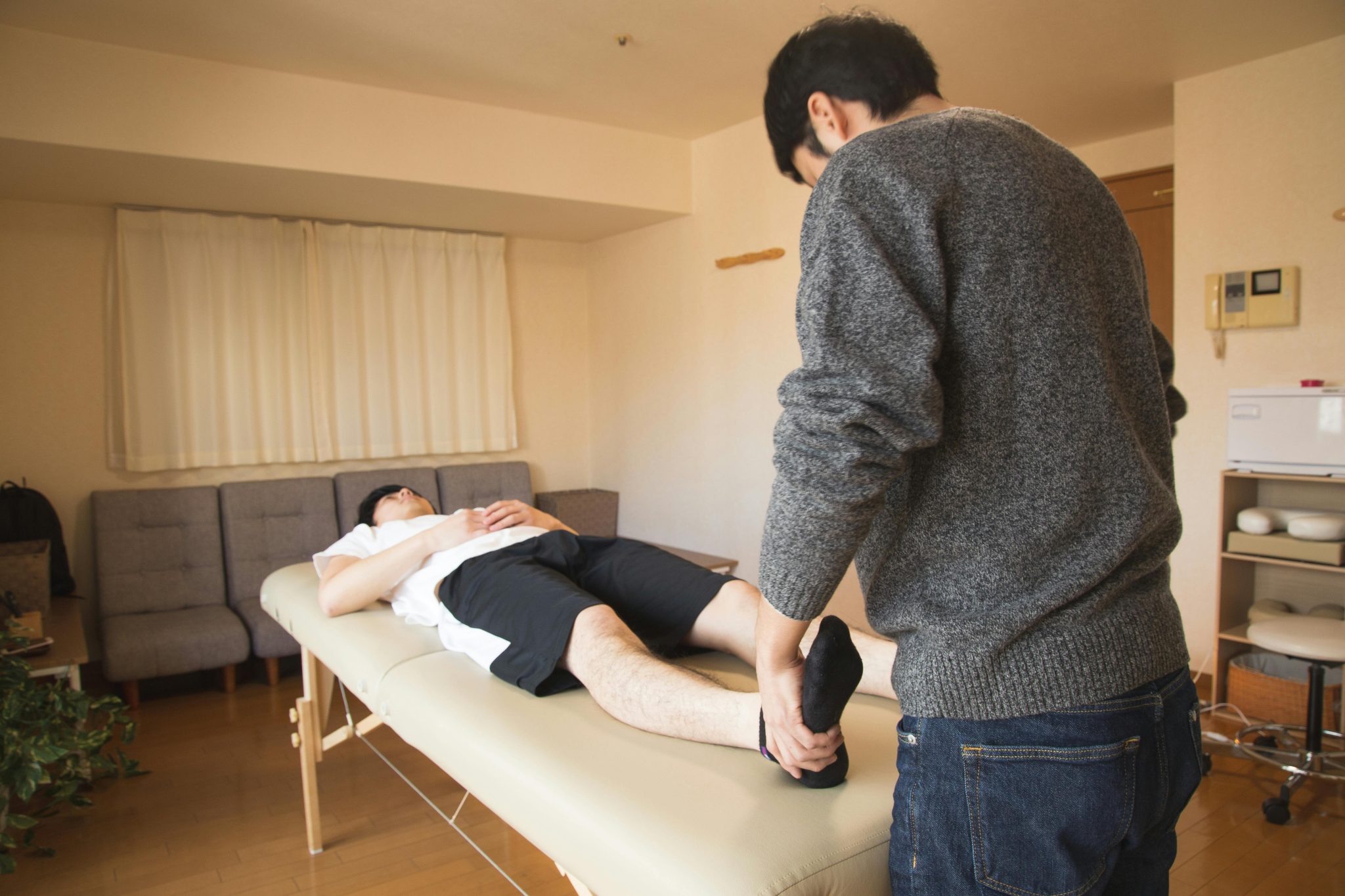Have you ever come across a Sports Therapist (or a Sports Therapy clinic) and wondered what sets this practice apart from physiotherapy? The terms Sports Therapist and physiotherapist are often used interchangeably, so what’s the difference between the two? Who should you choose, and how can both specialists help you?
Let’s find out.
What is physiotherapy?
Physiotherapy (also known as physical therapy) is a healthcare profession that focuses on restoring and maximising physical function and mobility in people of all ages. Physiotherapists are highly trained professionals who work with patients to address a wide range of musculoskeletal, neurological, and respiratory conditions. Their primary goal is to help patients regain independence and improve their quality of life.
How do physiotherapists work?
Physiotherapists employ a variety of techniques and interventions based on their clinical expertise to assess, diagnose, and develop treatment plans tailored to each patient’s specific needs. These may include (but aren’t limited to):
- Manual therapy. This is a hands-on approach used to relieve pain, improve mobility, and promote healing through joint mobilisation, soft tissue manipulation, and stretching, for example.
- Therapeutic exercises. These are specific physical activities prescribed by physiotherapists to help patients recover from injuries or improve their strength, flexibility, and range of motion.
- Electrotherapy – a technique that uses electrical currents or impulses to stimulate muscles and nerves, helping with pain management, muscle rehabilitation, and tissue healing.
- The use of assistive devices, such as crutches or walkers, orthoses, but also resistance bands, therapy balls, etc.
Collaboration is a fundamental aspect of physiotherapy practice. Physiotherapists add their best value when they work closely with other healthcare professionals, such as GPs, occupational therapists, and sports trainers (such as PTs and fitness coaches), to ensure a holistic approach to patient care. They take into account a person’s medical history, lifestyle, and individual goals when developing treatment plans, emphasising patient involvement and empowerment throughout the rehabilitation process.
What can a physiotherapist help with?
Physiotherapists commonly treat injuries such as sprains, strains, fractures, and dislocations. They help patients recover from surgeries, manage chronic conditions like arthritis or back pain, and rehabilitate from sports-related injuries. In addition to addressing physical injuries and impairments, physiotherapists also help patients recovering from strokes or neurological disorders, assisting them in regaining functional abilities and improving their balance, coordination, and mobility.
So with that said, what is Sports Therapy, then?
What is Sports Therapy?
Sports Therapy is a specialised branch of physiotherapy that focuses primarily on the prevention, treatment, and rehabilitation of injuries and musculoskeletal issues related to sports and exercise. Sports Therapists are trained professionals who work closely with athletes and sports people (both amateur and professional).
We focus on providing injury assessment, treatment, and rehabilitation specific to sports-related injuries to help people recover but also enhance their performance. By employing various techniques and modalities, which may be similar to what physiotherapists use, we aim to facilitate someone’s return to sports activities, optimise their physical condition, and prevent future injuries.
So while physiotherapy and sports therapy share similarities in the way they both focus on the physical rehabilitation and treatment of injuries (to restore mobility and functionality) and often overlap in approaches and techniques, Sports Therapy typically emphasises the specific needs and challenges faced by athletes by focusing on sports-specific techniques and conditioning. In other words, if you’re an athlete at any level and in any sport, you’ll want to come and see us!

How do Sports Therapists work?
When you come and see us for the first time, we assess and diagnose any injuries, pain, or specific complaints or restrictions in movement by discussing and closely examining your condition and medical history. We may perform physical examinations, a range of motion tests, and, on occasion, even utilise imaging techniques to determine the extent of an injury. When required, and if it’s something we can’t do at the clinic, we’ll try our best to provide recommendations for other specialists who may help with further investigation.
We may then proceed with manual therapy, such as massage and joint mobilisation to alleviate pain, reduce restrictions, and improve mobility. Often, we see your range of movement improve immediately at the back of a session. However, the work doesn’t stop at the appointment!
We can diagnose, help, and advise, but we need our patients to do the work too. During our sessions together, we might show you specific exercises (such as stretches or movements) that we’d like you to continue to do at home and in between appointments. While manual therapy is a great way to ease pain and reduce restrictions, your ticket to long-term success in your health and fitness journey is to do the work frequently and regularly. You may need to strengthen weaker muscles, address muscle tightness, correct asymmetries, or restore flexibility, for example. And these goals take time, consistency, and patience! Your exercises will vary depending on your circumstances, but the aim is always to reduce pain and improve overall movement and performance.
Injury care and prevention
A key principle for us at the clinic is to provide you with advice and guidance on injury prevention strategies. We want you to stay pain-free and injury-free! So while we may recommend a series of sessions together, we also want to enable you to take charge of your training and overall well-being.
That means we may advise you on performing specific warm-out routines or coach you through using proper techniques or equipment. If relevant, we may even recommend a PT to help you achieve your specific goals. After each appointment, you’ll walk away with a personalised treatment plan tailored to your needs.
Enhancing your well-being
Beyond the physical rehabilitation aspect, Sports Therapists also play a crucial role in athletes’ psychological well-being. We give you support and motivation throughout your recovery process to ensure maintain a positive mindset, which is crucial for overcoming setbacks and restoring confidence.
At our clinic, we believe in treating all patients with empathy, compassion, and understanding. We do this out of respect for everyone who chooses to work with us, of course, but the way we treat people is fundamental to the way we work. Our priority is to make you feel comfortable and safe. We’re passionate about building a trusting relationship with all our patients, which also acts as a fantastic motivator when it comes to encouraging you to engage in your own care in between appointments.
We build trust with our patients by actively listening, using positive language, displaying positive body language, being flexible, and adapting to your individual needs. We take a holistic approach to your individual case and heavily invest in team training and mentoring to ensure consistently high standards in patient care.
Who is Sports Therapy for?
So if Sports Therapy places such a huge emphasis on sports and exercise, does it mean it’s only for athletes and sports people? Not at all! If you’re experiencing any type of pain when you walk or simply go about your daily life, or if you’re concerned about an injury (old or recent), we can help.
We are well-known for our Running Clinic, but we work with people practising all sorts of different sports – from weightlifting to ultra-marathon runners and everything else in between. We work with elite athletes, recreational sports people, and anyone suffering from pain. So if you don’t consider yourself an athlete or sports person, we have you covered too! For example, we pride ourselves in supporting a lot of elderly patients at the clinic who are looking to minimise the impact of aging and want to maintain good mobility and stability.
No matter your level or ability with exercise, if you’re experiencing any pain, need injury rehabilitation or advice, or want to move better, we’re here to help. Sport Therapy is for everyone.
Is our Sports Therapy clinic for you?
At our clinic, we focus on the prevention, treatment, and rehabilitation of any sports-related injuries and pain in the body. We aim to get you to be and stay pain-free, move better, and achieve your goals – whatever they might be. While we work closely with athletes, sports people, fitness enthusiasts, and runners and have extensive experience and expertise in improving performance, we strongly believe Sports Therapy is for everyone who wants to be able to move and get through life pain-free. If you need some help or advice and would like to come and see us, you can book an appointment online.

